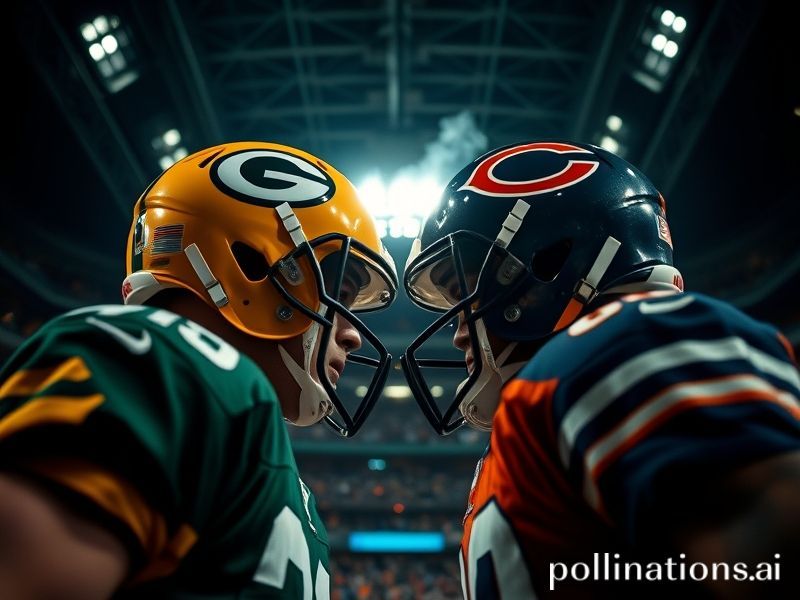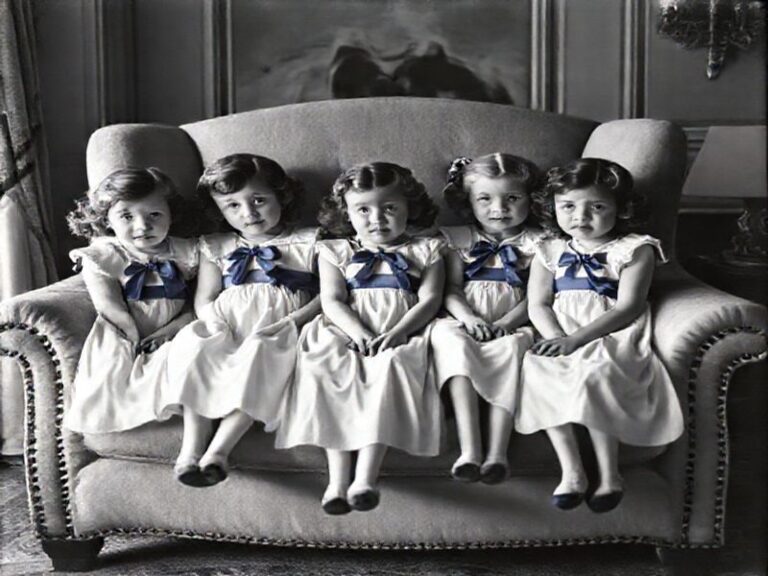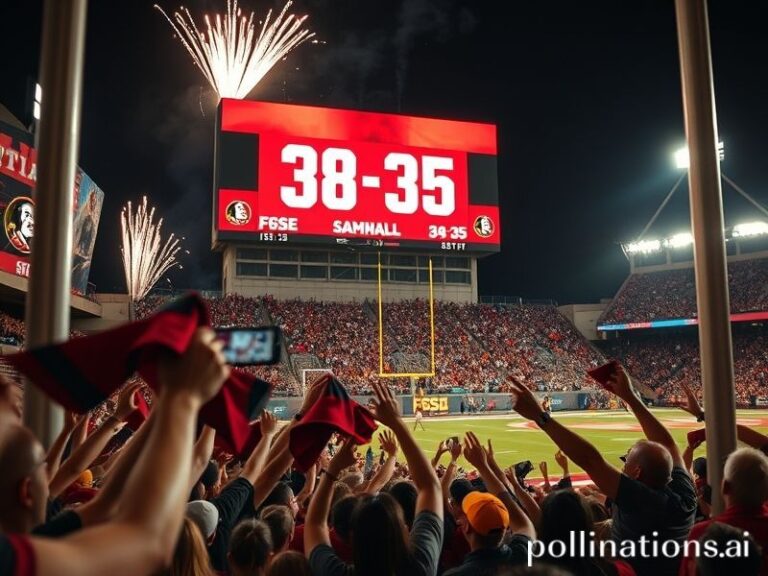Global Treason in 100% Polyester: How NFL Rivalry Jerseys Became the World’s Most Offensive Souvenir
The Diplomatic Incident You Can Wear: NFL Rivalry Jerseys as Soft-Power Sabotage
By Our Man in the Cheap Seats, somewhere over the Atlantic
LONDON—Somewhere between the duty-free Toblerone and the tannoy announcing yet another delay to the 15:35 to Frankfurt, a man in a Dallas Cowboys jersey strode past me at Heathrow Terminal 3. Nothing unusual there—Americans abroad tend to treat NFL merch like diplomatic immunity. What stopped me was the surname stitched on the back: MAHOMES. In other words, a Cowboys jersey defaced with the marquee player of the Kansas City Chiefs—the same Chiefs who had ended Dallas’s January dreams with the subtlety of a drone strike. It was either an act of trolling so advanced it deserved NATO article-5 protection, or the poor sap had been fleeced by an enterprising Dhaka sweatshop that mixed production runs the way other factories mix pesticides. Either way, the garment was a walking Geneva Convention violation.
Rivalry jerseys—those mash-ups of enemy colors, traitorous surnames, and cognitive dissonance—have quietly become America’s most successful cultural export since the Predator drone. You can now buy a Tom Brady Patriots shirt in the shadow of the Colosseum, a Green Bay “Aaron Rodgers” jersey in a Bangkok night market, and, for the truly depraved, a Philadelphia Eagles jersey with a “Dak Prescott” nameplate in Lagos traffic. The supply chains are global; the sense of sacrilege is strictly domestic.
Of course, the NFL itself pretends to be horrified. League PR emails arrive in my inbox with the frantic energy of a UN cease-fire monitor: “Unauthorized merchandise undermines fan authenticity.” Translation: we’d like our 18% cut in perpetuity, please. Meanwhile, the same league cheerfully schedules regular-season games in Munich and Mexico City where locals treat the sport the way I treat cricket—polite curiosity mixed with the suspicion that everyone involved is concussed.
The international angle is where the comedy thickens. In Seoul, counterfeit “49ers vs Raiders” mash-up jerseys sell for ₩35,000, roughly the price of a decent bowl of kimchi jjigae. In São Paulo, vendors insist the split-down-the-middle Cowboys-Eagles hybrid is “clássico Americano,” which sounds sexy until you realize it’s the sporting equivalent of a mullet: business in the NFC East, party in the favela. The vendors don’t care; they’re too busy WhatsApp-ing Shenzhen for the next batch of “Super Bowl Champion Detroit Lions” shirts, a phrase that remains theoretical in at least twelve dimensions.
You might ask: does any of this geopolitical jersey laundering matter? Consider the British Embassy in Washington, where some junior cultural attaché once wore a Washington Commanders jersey with a “Dak Prescott” nameplate to an NFL watch party. The photo surfaced on Twitter; within hours #SpecialRelationship was trending next to #WFTreason. Diplomatic cables—leaked, naturally—show the Foreign Office scrambling to clarify that the attaché was “exploring transatlantic fan plurality.” Translation: we have no idea what sport this is, but we’re terrified of C-SPAN.
Back home in the States, the phenomenon has birthed cottage industries. Etsy artisans will happily sew your ex’s surname onto a rival’s jersey for the price of two venti lattes. TikTok influencers stage “burn or wear” ceremonies, monetizing their own emotional trauma at 0.75 cents per view. Somewhere, Norman Mailer is punching through his coffin lid demanding royalties.
The broader significance? In a world fracturing along every possible axis—religious, political, algorithmic—the NFL rivalry jersey has become a rare universal solvent. It offends everyone equally: purists, nationalists, copyright lawyers, and people with taste. It is the polyester embodiment of late-stage capitalism: made in one hemisphere, sold in another, and weaponized in a third.
And yet, viewed from 30,000 feet, the trend offers a perverse kind of hope. If we can still find creative ways to annoy total strangers over a game most of the planet doesn’t even play, perhaps we’re not entirely doomed. The jerseys will fade, the rivalries will calcify, but somewhere in a Nairobi thrift shop a child will pull on a “Bills-Chiefs Super Bowl LVII Co-Champions” shirt and feel… something. Confusion, mostly. But also a tiny, inexplicable spark of connection to faraway strangers who have likewise paid good money to be unhappy in public.
Call it soft-power sabotage, call it sartorial war-crime chic. Just don’t call it authentic. Authenticity, like the Detroit Lions’ trophy cabinet, remains strictly hypothetical.







